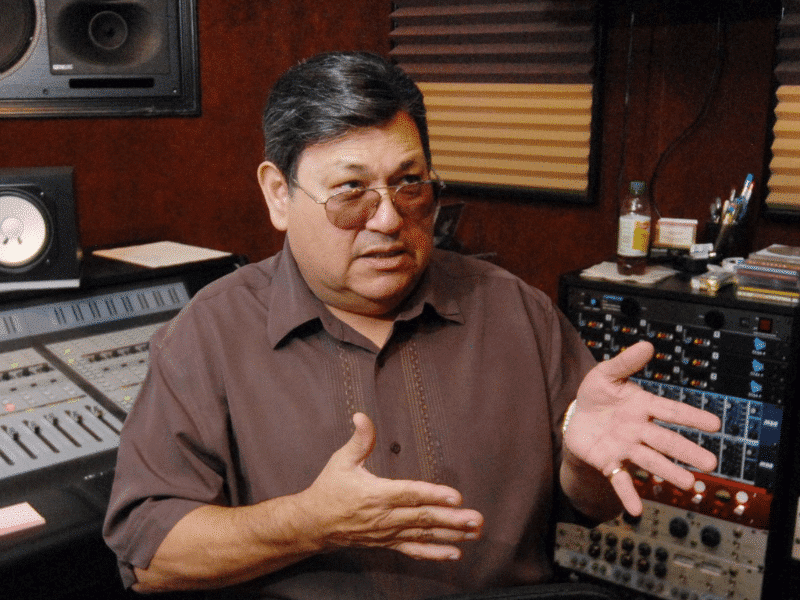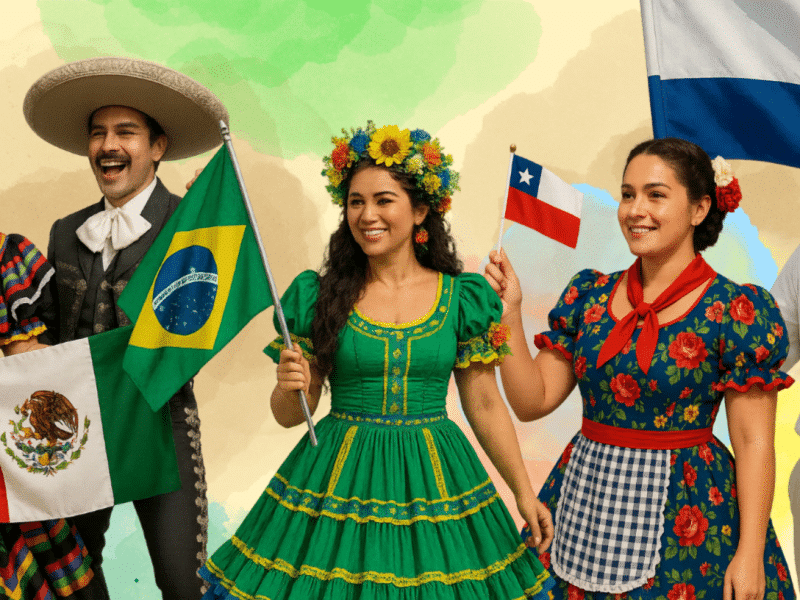Identity and Cultural Orgullo as a White-Passing Latina: The Privilege is Complicated
This personal essay discusses the fact that white and white-passing Latinas enjoy cultural privilege many darker-skinned Latinas don’t, but that doesn’t mean they also aren’t trying to navigate “Latinidad” in the U.S. – an identity that only exists outside of Latin America.

Today, there are many labels I proudly use during introductions. I am a first-gen Guatemalteca-Mexicana college student. Identity is one of the things we use to define ourselves, and we cling to it; it’s our orgullo. Latino culture is orgullo. I, along with many others, understand what the experience is like when we’re told we don’t look as if we have the privilege of feeling the pride that is our culture.
I never questioned the cultural experiences or events I followed my parents to as a kid, I found my comfort in the grand backyard fiestas, Noche Buena celebrations, and endless (and sleepless) quinceañeras. I felt spoiled being the kid who had tamales and champurrado for breakfast before school. My mom’s outrage at novelas was mine as well. To put it simply, all I knew was that being Latina meant I had warmth, comfort, and celebration surrounding me.
When I got to middle school, I began to comprehend how my identity was both used as an insult and simultaneously disregarded. I witnessed people I cared about deal with microaggressions for their language barrier, yet on my end, I would be told things that left me confused:
“You don’t look Latina,” “You’re acting white,” ”You don’t look like someone who would speak Spanish.”
I felt conflicted, should I be thankful I’m seen as what the “norm” is? Does being called white mean I’m being seen as educated? Why am I so insulted but strangely relieved? Who the hell decided being Latina came with a template anyways?
Reflecting back, I realize that subconsciously I was associating not being seen as a minority with a sense of safety and acceptance. This eventually manifested into believing I was just a whitewashed Latina. I looked in the mirror and believed this was the way I was supposed to present myself as. I pushed away where I found my comfort and leaned into the identity others were essentially defining for me. I pushed away what was my orgullo. By the way, no thanks to the mandatory school surveys where I had to mark “Other” or “White” alongside “Hispanic/Latino”.
Down the line, I learned what the term “Eurocentric” meant. It put into perspective how the views and beauty standards of today came to be, how it shaped the expectation of what “educated” and “not a minority” looks like. At the end of the day, this is an outdated mindset that shouldn’t carry weight or value today. I began to look towards strong badass Latinas who never hesitated to correct anyone trying to doubt their identity.
There was a power in hearing someone say the words “No, I am Latina.”
It’s freeing when you’re the one taking charge of what defines your Latinidad. It runs a lot deeper than appearance, Spanish fluency, or stereotypes. It’s generations’ worth of cultura and experiences to carry. I’m still strengthening my connection to my roots today, and when I think of the diverse women who confidently take pride in their identity, it pushes me to tap into my orgullo even more.



